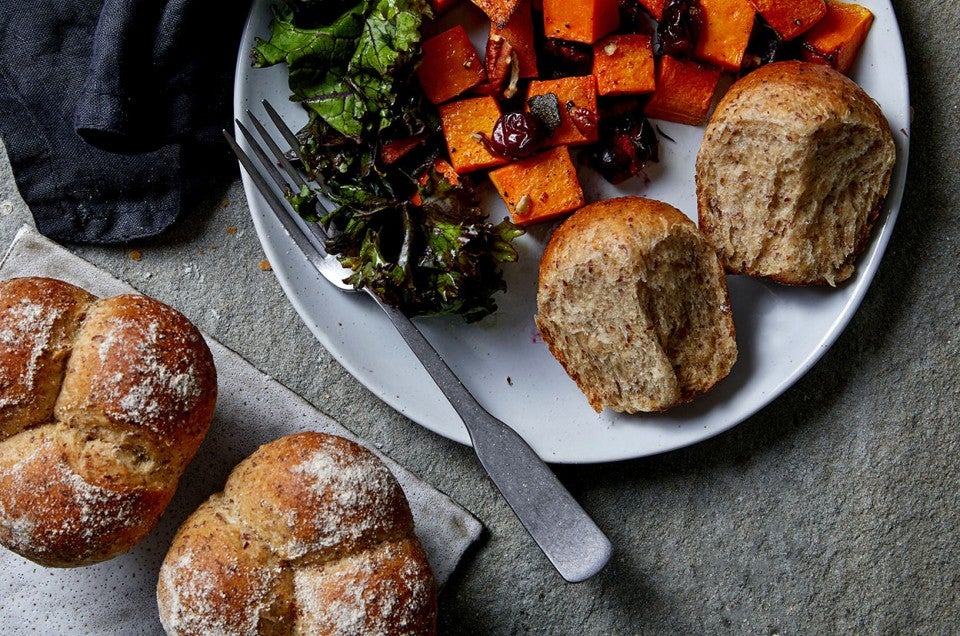Wheat-Oat-Flax Buns
Whole wheat, oats, and flax give these soft dinner rolls a tweedy texture and a nutty, slightly sweet flavor.

Whole wheat, oats, and flax give these soft dinner rolls a tweedy texture and a nutty, slightly sweet flavor.

Weigh your flour; or measure it by gently spooning it into a cup, then sweeping off any excess. In a large bowl, combine all of the ingredients, mixing until a rough dough forms. Cover the dough and set aside for 20 minutes to give the whole grains a chance to hydrate.
Knead the dough at low speed with a mixer for 6 minutes or by hand on a lightly floured surface for 8 minutes, until smooth and satiny. The dough should bounce back when poked.
Place the dough in a greased bowl, or in an 8-cup measure (so you can track its progress as it rises), cover and let it rise for 1 to 1 1/2 hours, until nearly doubled.
Gently deflate the dough, and divide it into 12 pieces (about 70g each) for sandwich-sized rolls, or 16 pieces (50g each) for dinner rolls. Shape each piece into a round ball.
Place the buns on a lightly greased or parchment-lined baking sheet, cover with greased plastic, and let rise for about 90 minutes, until puffy-looking. Toward the end of the rise time, preheat the oven to 350°F.
Uncover the buns and brush the tops with the egg wash. Sprinkle with oats and/or flax seeds and bake for 21 to 25 minutes, until golden brown. Remove from the oven and transfer to a rack to cool. Serve warm or let cool completely to enjoy later.
Wrap completely cooled buns airtight, and store at room temperature for several days; freeze for longer storage.
Substitute an equal amount, by volume, of King Arthur Rolled Oats for the oats in this recipe. They'll add slightly more chew and heartiness (and also more protein!).
Orange juice won't add its own flavor to the rolls, but will mellow any potential bitterness in the whole wheat.
Use the greater amount of water in winter or in drier climates; the lesser amount in summer, or in a humid environment.
These soft, tender buns feature some of Canada's most important grain crops: wheat, oats, and flax. The addition of canola oil adds another touch of the North: canola oil, made from rapeseed, was originally developed in Canada as a special, lower-acid vegetable oil. In fact, its name is an acronym: CANadian Oil, Low Acid.


